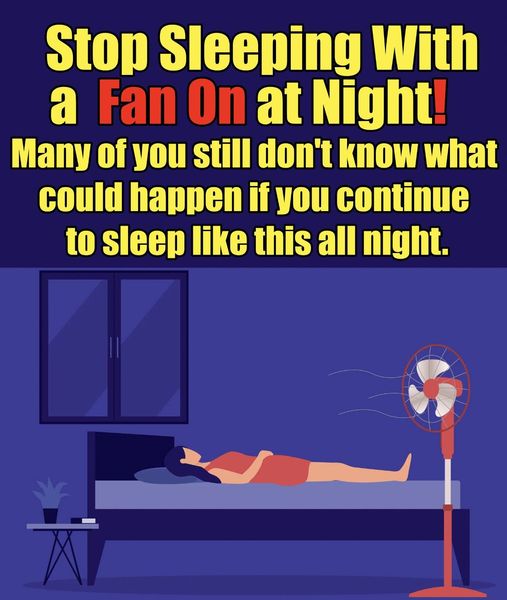For many, the gentle hum of a fan is synonymous with relaxation and better sleep. However, while fans are often used to create white noise or circulate air in a room, they may not always be the sleep aid you think they are. In fact, using a fan at night could inadvertently disrupt your sleep by affecting your body’s ability to regulate temperature—a critical factor in achieving deep, restorative rest.
The Science Behind Sleep and Temperature
Sleep quality is heavily influenced by environmental factors, particularly room temperature. According to experts, the ideal room temperature for optimal sleep falls between 60°F and 67°F (15°C to 19°C) . This range aligns with your body’s natural drop in core temperature as it prepares for sleep.
During the night, especially during deep sleep and REM cycles, your body’s ability to regulate its internal temperature decreases. If external conditions—like an overly warm or chilly room—are misaligned with your body’s needs, these vital stages of sleep can be disrupted. For example:
- Too hot: You might toss and turn, sweat excessively, or wake up feeling overheated.
- Too cold: Muscles contract, making it harder to relax, and fragmented sleep occurs as your body works overtime to stay warm.
Melatonin, the hormone responsible for inducing sleep, thrives in cooler environments. A lower room temperature encourages melatonin production, signaling to your brain that it’s time to wind down. Conversely, a warmer environment can inhibit this process, leaving you restless and unable to fall asleep easily.
How Fans Can Sabotage Your Sleep
While fans are commonly used to cool down a room, they don’t actually change the ambient temperature—they simply move air around. Here’s how relying on a fan can backfire:
1. Overheating on Hot Nights
On particularly warm evenings, a fan might give the illusion of cooling relief, but it doesn’t lower the actual room temperature. Instead, the circulating air can cause sweat evaporation, which may leave you feeling sticky and uncomfortable. As a result, you could wake up drenched in sweat, disrupting your sleep cycle.
2. Feeling Too Cold in Cooler Rooms
If your bedroom is already within the recommended cool range, a fan blowing directly on you can make you feel colder than necessary. This can lead to shivering, muscle tension, and frequent awakenings as your body struggles to maintain warmth.
3. Dry Air and Dehydration
Fans can exacerbate dryness in the air, leading to dehydration. This can irritate your throat, nasal passages, and skin, causing discomfort that interrupts sleep. People prone to allergies or sinus issues may find their symptoms worsen after prolonged exposure to fan use.
Better Alternatives to Fans for Better Sleep
CONTINUE READING ON THE NEXT PAGE 🥰💕

